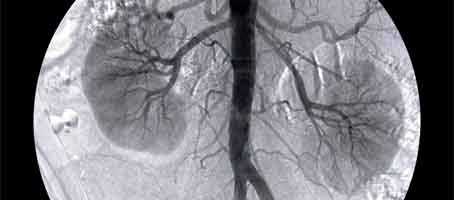An anti-TGF-beta 1 therapy trial for diabetic nephropathy has been terminated four months before its scheduled completion.
Anti-TGF-beta 1 therapy
TGF-beta over-activity has been implicated as a key pathogenic factor in diabetic nephropathy, which is the deterioration of proper functioning in the kidneys.
Scientists had previously discovered that TGF-beta 1 therapy was effective as an antibody against three TGF-beta isoforms that occur in diabetic nephropathy.
The news was revealed by Dr. James R. Voelker of Eli Lilly and Co., Indianapolis, who had been working on the study.
Study problems
416 patients with type 1 or type 2 diabetes with diabetic nephropathy were randomised to receive treatment with either placebo, or anti-TGF-beta 1 therapy.
The groups had similar demographics, with 75 per cent being men and 90 per cent having type 2 diabetes. All patients were receiving stable renin-angiotensin-system inhibition (RASi) therapy prior to the trial.
Treatment at any dose was not significantly more effective than placebo. This was in respect to the mean change in serum creatinine, which was the primary outcome measure.
An independent data safety monitoring committee reviewed safety data periodically, calling for an unscheduled utility analysis to be performed in the study’s later stages.
The decision was made to prematurely terminate the study based on the results of that analysis.
Dr Voelker concluded: “Diabetic nephropathy is a disease of significant unmet medical need, as it is the leading cause of end-stage renal disease in much of the world.
It is incumbent upon the nephrology community to identify new and more effective treatments than are currently available.”
What's new on the forum? ⭐️
Get our free newsletters
Stay up to date with the latest news, research and breakthroughs.







